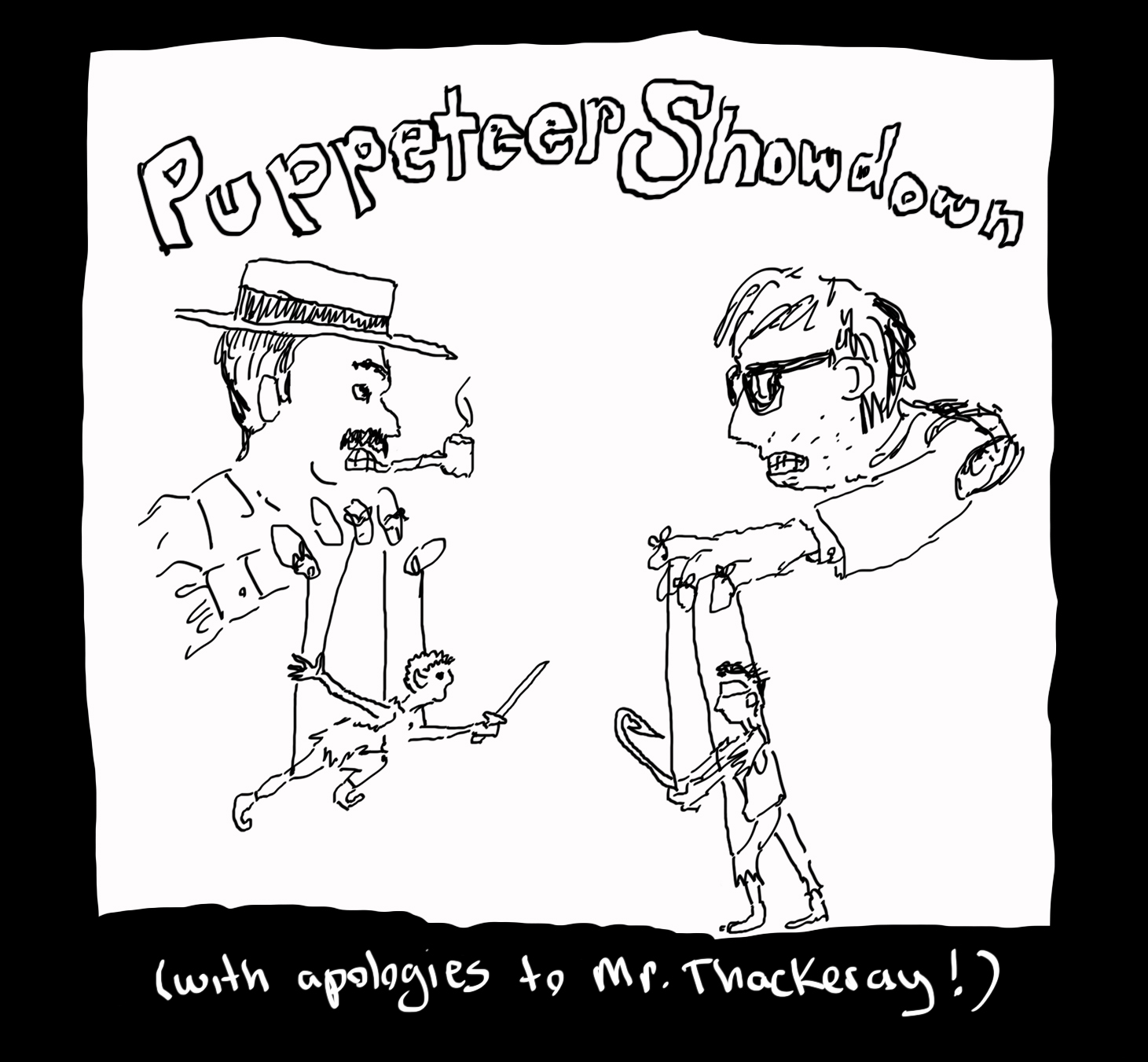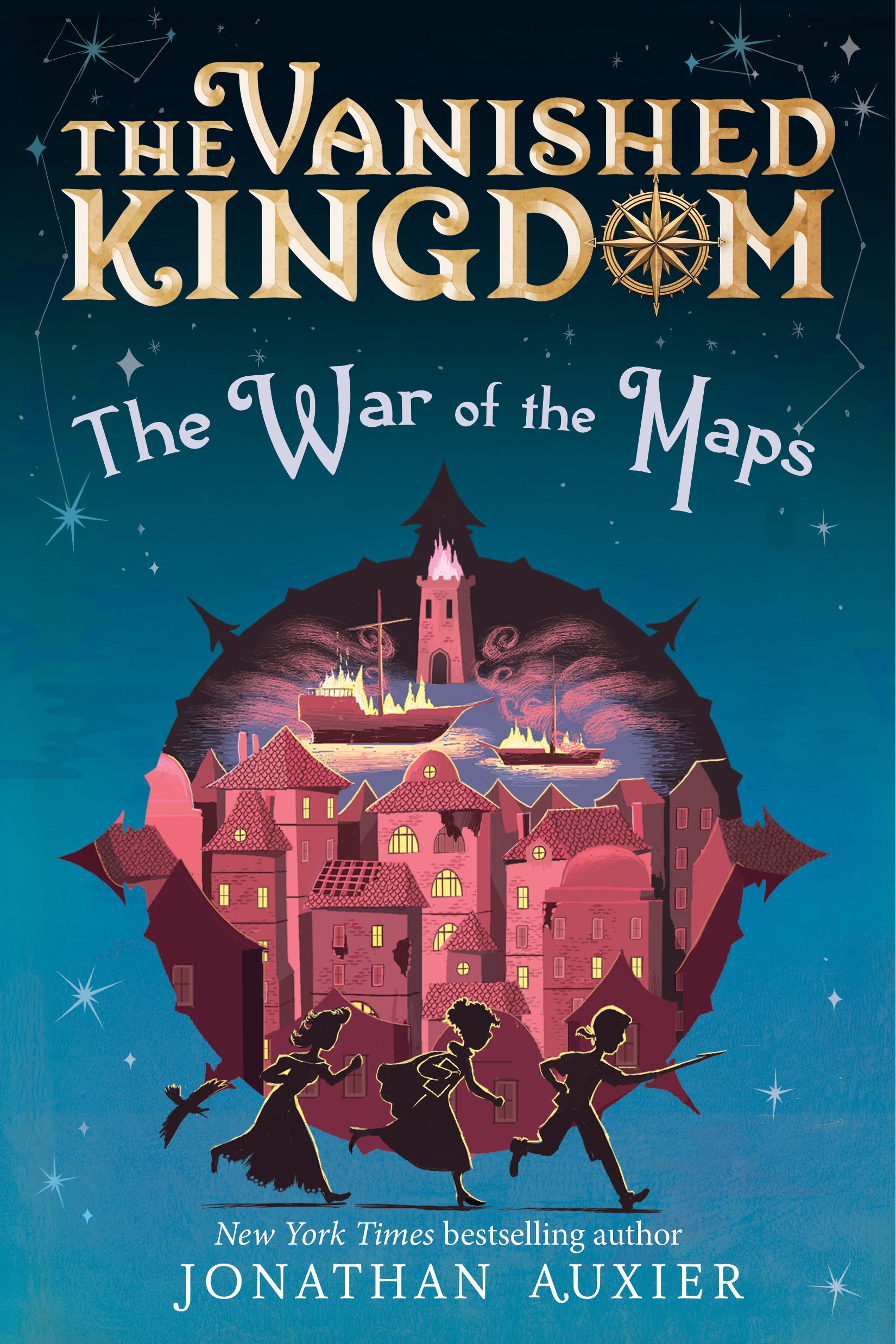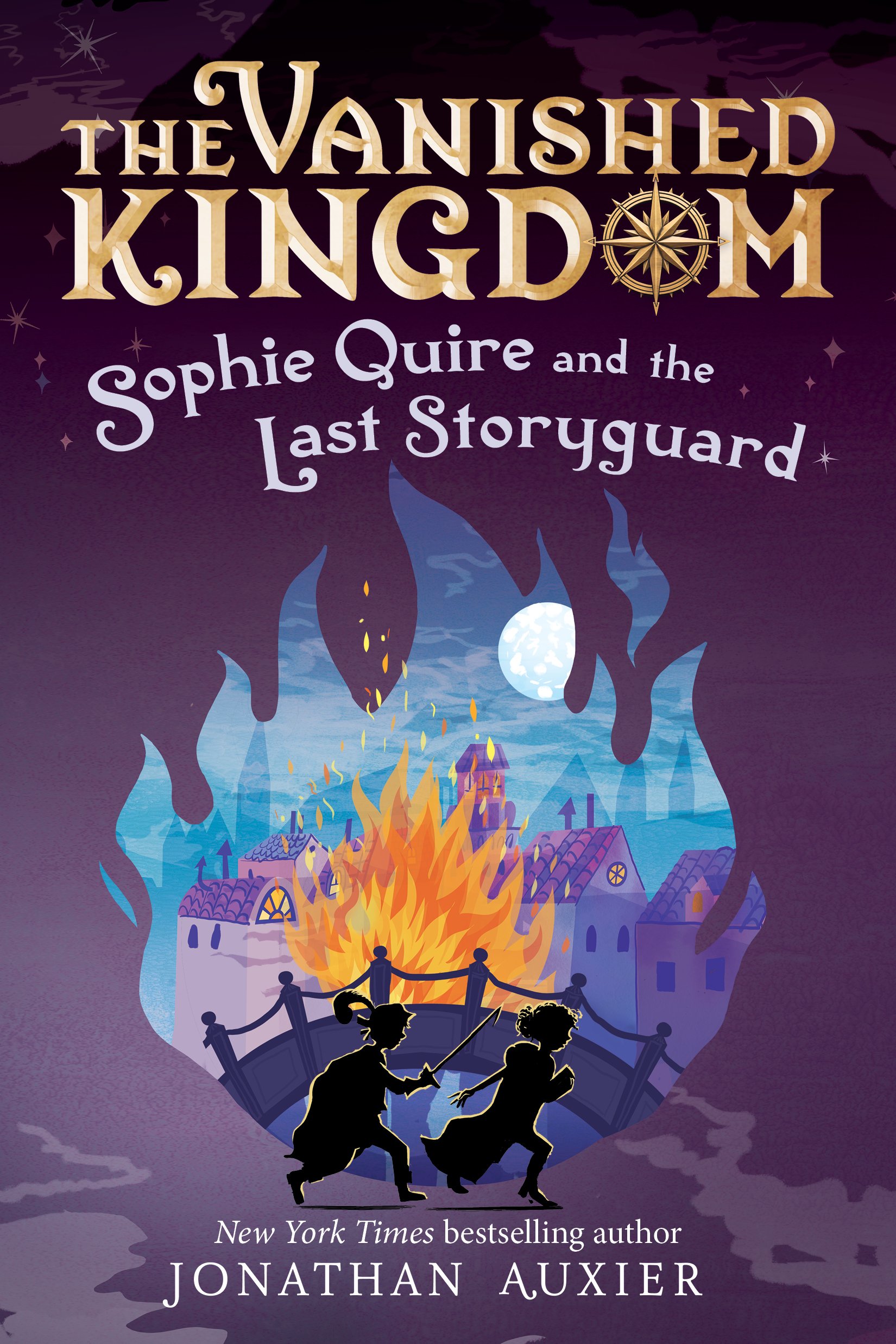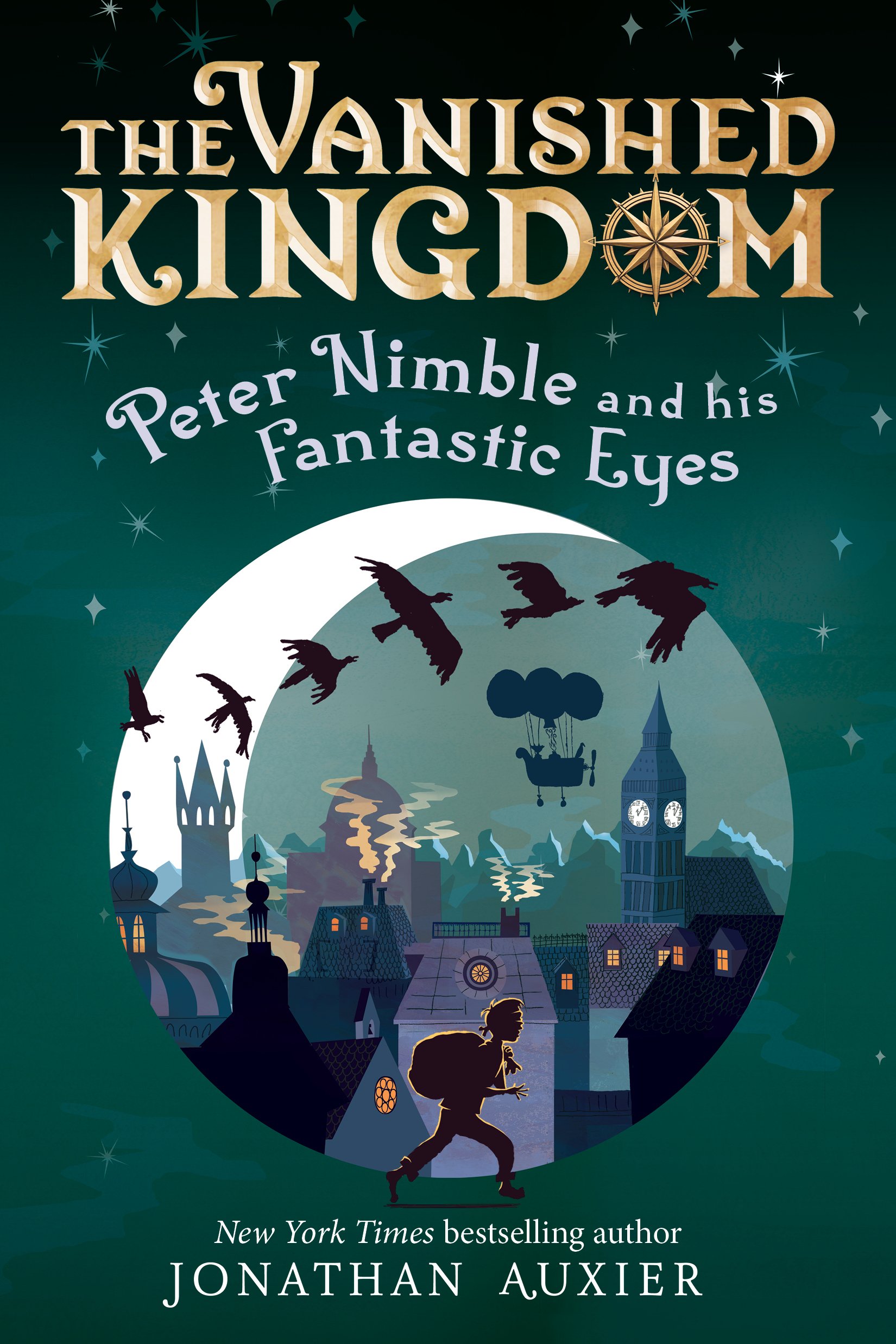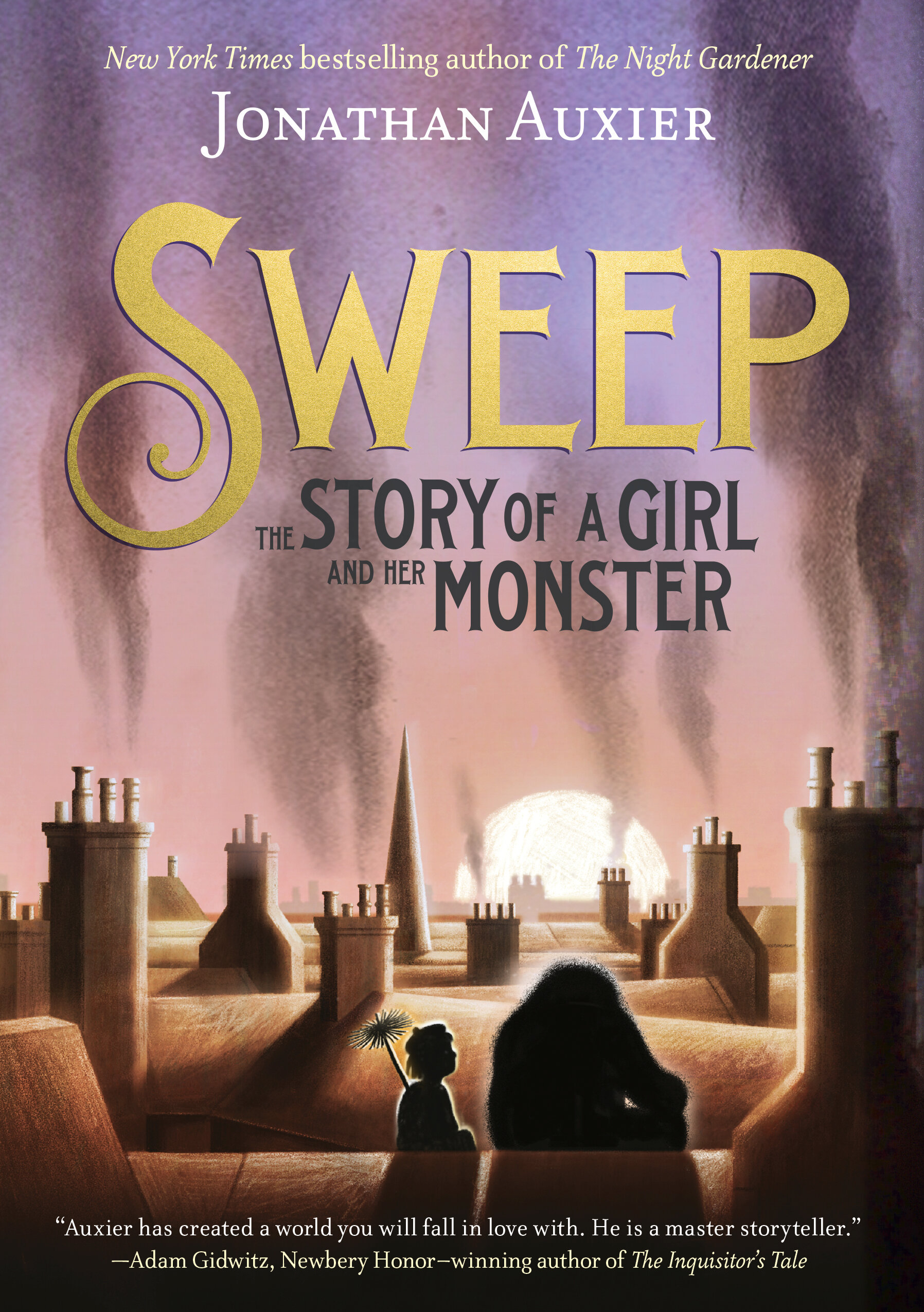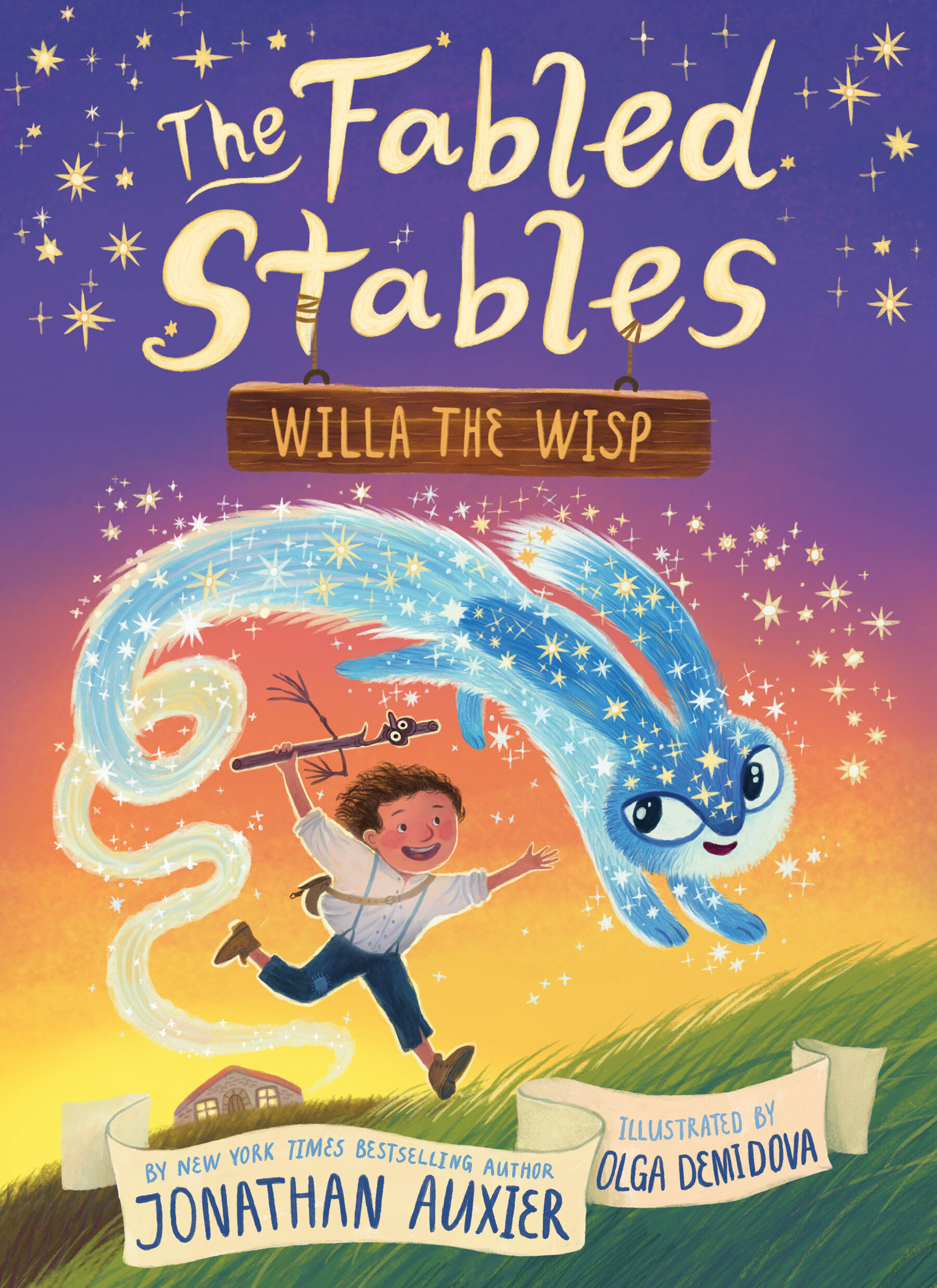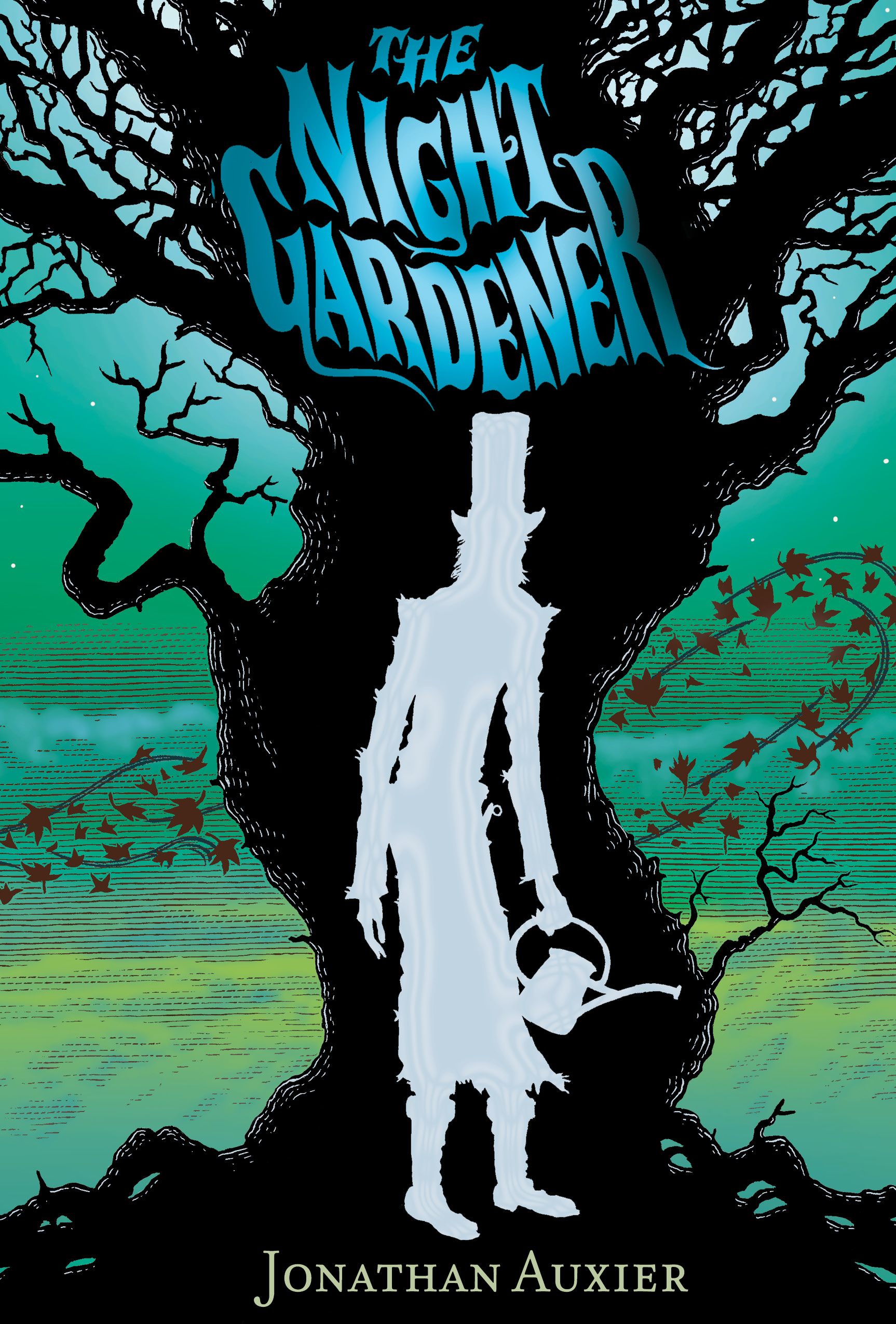Barrie vs. Auxier: Narrator Showdown!
/I'm sure regular Scop readers are getting sick of all my recent publicity-style announcements about Peter Nimble. In that spirit, I am going to restrain my gushing about last week's book launch party to the footnote at the end of this sentence.[1. Holy crap, it was AMAZING! We had about 90 people show up ... which is a lot more than they had chairs for! I got a chance to meet so many wonderful readers, and reconnect with old friends. We gave away Peter Nimble t-shirts to everyone who asked questions. There was also a birthday cake, which was delicious! (I even forced the people to sing "happy Birthday" to me!) The biggest treat of all was that my father, who had just had emergency surgery in DC, checked himself out of the hospital that morning so he could show up and surprise me -- I may or may not have cried upon seeing him. For those interested in seeing some pics, you can go here, here, or here. Also, Adam Silva did a great rundown of the event here.] Instead, I want to focus on one question that came up during the Q & A from blogger/teacher Monica Edinger.
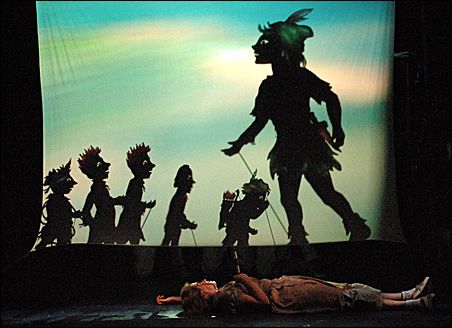 Monica wanted me to discuss how I had patterned my narrator after the narrator in JM Barrie's Peter Pan.[2. I have a well-documented love for Peter Pan. Betsy Bird outlines a few Barrie connections in her School Library Journal review. Also, I talk about the relationship between one of my main characters and Wendy Darling in this interview with Bookpage Magazine.] Though flattered by the comparison, I didn't agree with her point. I wasn't able to sufficiently respond to her at the event, but I did follow up with an email, which I've excerpted below.
Monica wanted me to discuss how I had patterned my narrator after the narrator in JM Barrie's Peter Pan.[2. I have a well-documented love for Peter Pan. Betsy Bird outlines a few Barrie connections in her School Library Journal review. Also, I talk about the relationship between one of my main characters and Wendy Darling in this interview with Bookpage Magazine.] Though flattered by the comparison, I didn't agree with her point. I wasn't able to sufficiently respond to her at the event, but I did follow up with an email, which I've excerpted below.
My Three Reasons that the Narrator in Peter Nimble Is Different than the Narrator of Peter Pan:
Barrie gives his Narrator a special vocabulary. If the digressions of Peter Pan indicate that the Narrator is spinning his tale, his language enforces it. More than once, Barrie uses opaque terms that have no grounding in the real world. A perfect example of this would be Mrs. Darling's "kiss," which never really gets explained. That's because there is no explanation beyond its offhand use. Unlike the teacherly essayists of the 18th century (and, I would argue, Peter Nimble's Narrator), Barrie's Narrator isn't interested in sharing/defining this special vocabulary with his readers.
Barrie's Narrator sentimentalizes childhood. While Barrie isn't afraid to let his child characters get a little bloody, he still maintains an infatuation with their innate innocence reminiscent of the Romantics. Even in calling Peter Pan "heartless," there is a sense of longing in the Narrator's voice ... children are to him pure in a way adults will never be. I would argue that in the Narrator of Peter Nimble, we may find affection toward our young hero, but never adoration of the level that Barrie uses for Peter Pan... the Narrator of Peter Nimble, for example, would never suggest that Peter or Peg contains something special that adults like Professor Cake do not.
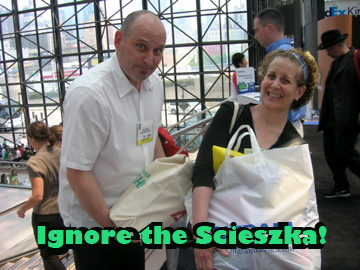 Monica was kind enough to respond. While she agreed with my above points, she also thought I was ignoring one major similarity in our writing -- specifically how both our narrators are able to move between character perspectives. I've reprinted Monica's excellent response below (with some minor edits).
Monica was kind enough to respond. While she agreed with my above points, she also thought I was ignoring one major similarity in our writing -- specifically how both our narrators are able to move between character perspectives. I've reprinted Monica's excellent response below (with some minor edits).
Monica's One Gigantic Reason That I'm Wrong:
When reading Peter Nimble I noticed the omniscient narrator as a character, breaking through here and there to explain things ... I became extremely aware of this sort of narration due to Philip Pullman.[1. Yes, she is on a first-name basis with the man! For those who are interested in the subject of the "sprite" narrator, I'd advise you to check out Monica's very-excellent post on the subject here.] Philip speaks of his narrator as a sprite, a character who can flit all over the place. I did think you did that as did Barrie ... isn't your narrator in that tradition of being able to be in different places, inside the minds of different characters, etc.? This is what Philip finds so fascinating about the omniscient narrator and me, too.
And just like that, I'm forced to completely reverse my opinion on the subject! Going through the book, I realize that a narrator that shifts perspectives is a pretty rare thing, and other than Barrie, I can't think of another early author that does it. Well played, Ms. Edinger.
And she's not alone! This very same topic came up last week in an interview with author Kate Milford ... and my response was similarly dense.
What's the moral of this story?
Never trust a writer to talk about his own book. He's an idiot.

